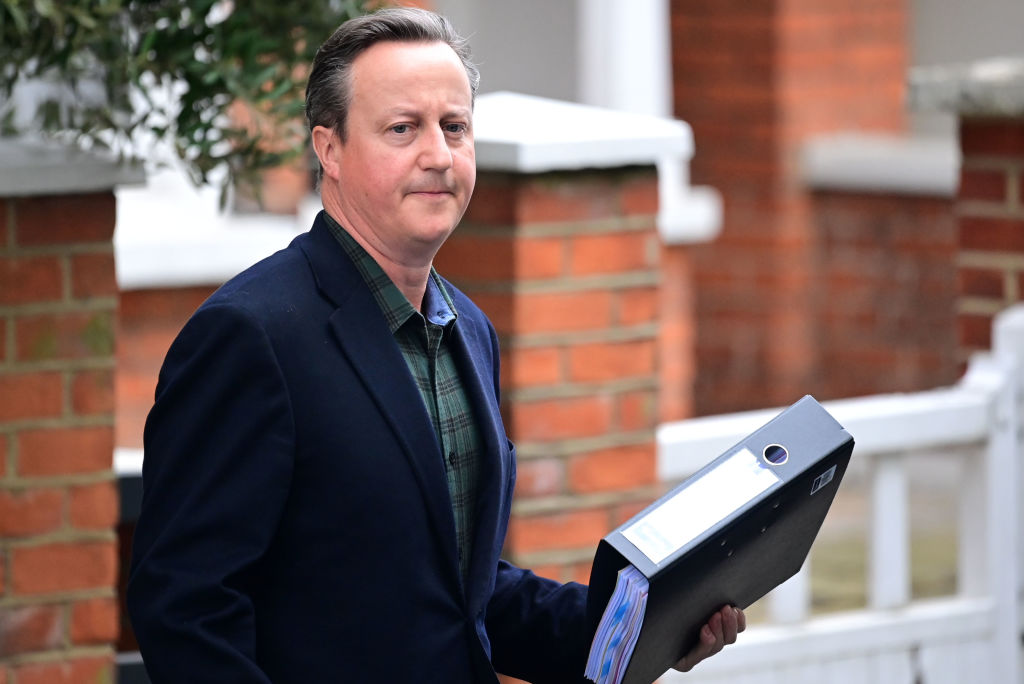The news – reported in the FT Weekend – that former Prime Minister David Cameron is to teach a three-week course in politics next month at the New York Abu Dhabi University is quite something.
For Cameron’s political career ended in spectacular failure – and he has hardly covered himself in glory since. A review of the former PM’s six years in Downing Street would have to include the way that it ended – which negated any achievements that his previous coalition with Nick Clegg’s Lib Dems may have chalked up – with Dave’s disastrous decision to call and lose the 2016 referendum on Britain’s membership of the EU.
No one forced Cameron to take the plunge that ended his time in power so swiftly and finally. His promise to hold the referendum was a panic move in response to the rise of Nigel Farage’s Ukip – and it was a pledge that he never thought that he would have to redeem. Cameron airily assumed that his coalition with Clegg would continue after the 2015 election, and that the Lib Dem leader would insist that the referendum be scrapped as the price of his cooperation.
Instead, the Lib Dems were all but wiped out, the Tories won a clear majority on their own, and Cameron was compelled to make good on his referendum promise. Arrogantly – and boosted by narrowly defeating the SNP in the referendum on Scottish independence – Cameron still assumed that victory would be his.
So confident was he that he would win that he went ahead with the vote just a year after returning to Downing Street, even though the EU flatly refused to make any concessions to give him a fig leaf excuse that he had forced them into ‘reforming’. Instead, Dave was humiliatingly rebuffed by German Chancellor Angela Merkel, and his empty-handed return from meeting her was compared to Neville Chamberlain’s surrender to Hitler at Munich in 1938.
Another Cameron idea to fall on its face was his invitation to Barack Obama to intervene in the referendum campaign. The US President obediently parroted Cameron’s line that Britain would be ‘at the back of the queue’ for any trade deal if its people had the temerity to vote to leave the EU. Ignoring him, they duly did so and Cameron was out on his ear – and out of politics altogether – despite having promised to stay whatever the referendum result.
In the years since his embarrassing defeat and departure Dave has been understandably skulking in the shadows – or ‘keeping a low profile’ as the FT politely puts it. He took some time to write his memoirs in a much-mocked shepherd’s hut parked in the garden of his Oxfordshire home.
And then last year he set the seal on his political failure by another major reputational error, making some easy money – £8 million was the reported figure – by writing to his mates in government on behalf of the dodgy (and now collapsed) Anglo-Australian Greensill supply chain company in what the FT describes as ‘the biggest lobbying scandal in Britain for a generation’. A scandal, incidentally, that is still under investigation by the Fraud Office. (Cameron’s spokesperson said he ‘acted in good faith at all times’ and there was ‘no wrongdoing in any of the actions he took.’)
Dave’s remuneration for teaching students about ‘politics and government in an age of disruption’ has not been disclosed, but in oil rich Abu Dhabi it is likely to be substantial. Such a short course, however, is unlikely to make him quite as much as his Old Etonian rival and successor as PM Boris Johnson has trousered for a handful of speeches since his time in Downing Street ended as catastrophically as Cameron’s in September.
Even the hapless and charisma free Theresa May – never exactly a compelling thinker or orator, and yet another Tory Prime Minister whose time in power ended in abysmal failure – was reported in June to have made £2.1 million on the international speaking circuit since leaving office.
This raises the question: why do foreign firms, institutions and universities with more money than sense think it worthwhile paying a fortune to a trio of political failures for their thoughts on a subject that they have clearly never mastered? It is a mystery that the great detective Sherlock Holmes would call ‘a three-pipe problem’.






Comments